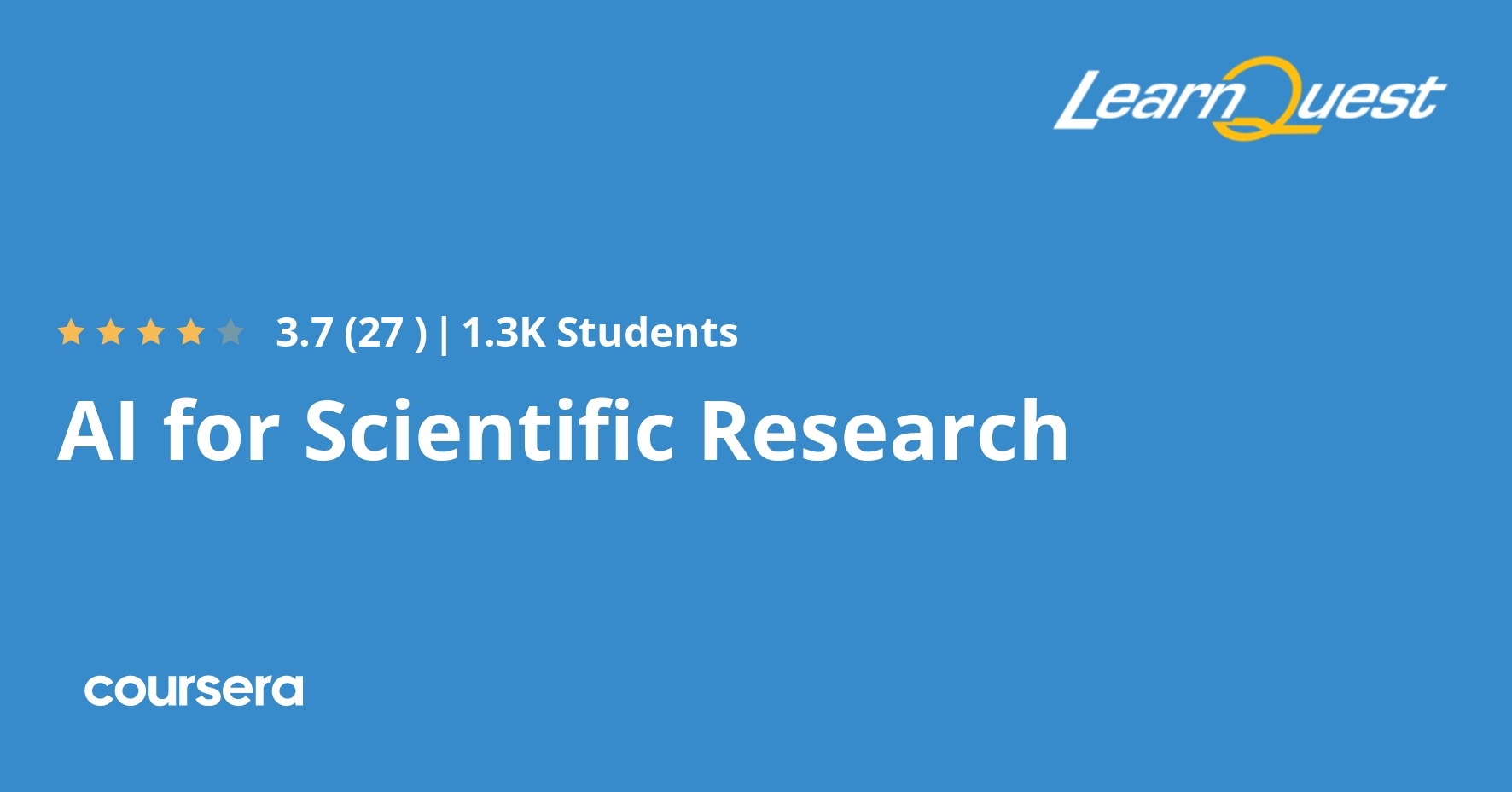Description
In the AI for Scientific Research specialization, we’ll learn how to use AI in scientific situations to discover trends and patterns within datasets. Course 1 teaches a little bit about the Python language as it relates to data science. We’ll share some existing libraries to help analyze your datasets. By the end of the course, you’ll apply a classification model to predict the presence or absence of heart disease from a patient’s health data. Course 2 covers the complete machine learning pipeline, from reading in, cleaning, and transforming data to running basic and advanced machine learning algorithms.In the final project, we’ll apply our skills to compare different machine learning models in Python. In Course 3, we will build on our knowledge of basic models and explore more advanced AI techniques. We’ll describe the differences between the two techniques and explore how they differ. Then, we’ll complete a project predicting similarity between health patients using random forests. In Course 4, a capstone project course, we’ll compare genome sequences of COVID-19 mutations to identify potential areas a drug therapy can look to target. By the end, you’ll be well on your way to discovering ways to combat disease with genome sequencing.
Each course in this specialization contains practice labs built on the Coursera lab platform. You will use the provided libraries and models to perform machine learning and AI instructions that help answer important questions in your dataset. The final course is a capstone project where you will compare genome sequences of COVID-19 mutations to identify potential areas a drug therapy can look to target. It begins with the basic setup and walks through the entire analysis process.





